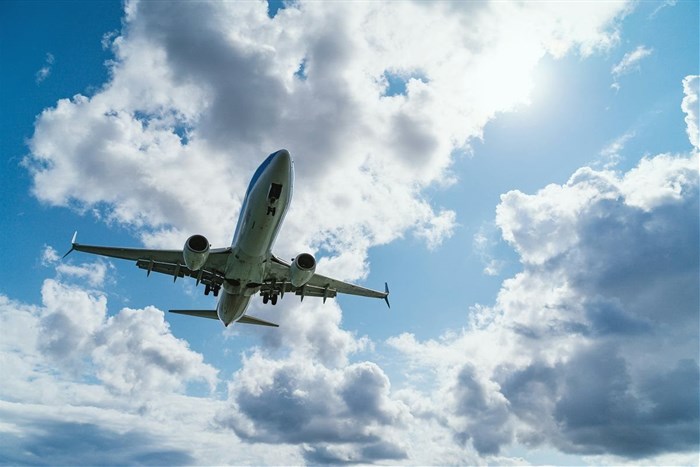As the resurgence of international tourism unfolds, South African travellers must stay ahead of the curve in navigating the evolving air travel landscape. Recent data from the World Tourism Organisation indicates that international tourism has rebounded impressively, reaching 90% of pre-pandemic levels in 2023. However, this rebound comes with its own set of challenges and opportunities, particularly concerning air capacity and fares.

Source: Supplied
“The travel industry is still finding its rhythm, leading to reduced flight options and fluctuating fares. It’s a landscape that generously rewards planning. Booking early – especially when travelling during peak season – combats many current challenges, giving South Africans more control over their trips and opening up international adventures that might otherwise feel out of reach,” comments Euan McNeil, managing director of Flight Centre Travel Group South Africa.
Air capacity and its impact on fares
Air capacity (the number of seats airlines offer) is still recovering from pandemic-era lows, caused by supply chain disruptions and staff cuts.
Airlines are working hard to remedy the damage done, but new factors like manufacturing delays, skills shortages, and ongoing route adjustments mean capacity remains lower than 2019 levels.
This reduced capacity is even more noticeable when considering the International Air Transport Association predicts a record 4.7 billion passengers will fly globally in 2024.
Why fares won’t return to pre-pandemic levels
Along with the challenges mentioned above, economic pressures like fuel costs, global conflicts, and inflation have reshaped the price of flying. “Add in the sheer volume of people eager to travel again, and airlines simply don’t need to rely on last-minute discounts like they once did,” explains McNeil.
“The travel sector continued to thrive in 2023 with both travel agents and airlines welcoming amplified consumer spending – 10.4% and 30.8% increases, respectively, according to TTG Media. This sustained surge in travel demand directly affects pricing,” he adds.
While many travellers long for the ‘good old days’ of rock-bottom last-minute fares, Flight Centre’s travel experts insist that it is wiser to focus on other strategies, like booking at least six to 10 months in advance for international trips unless you happen to be travelling outside of peak periods.
“Booking early is hands-down the best way to score better fares and flight availability. You gain access to a wider range of options and have the luxury of time for planning the rest of your adventure. The last-minute scramble during peak holiday periods is rarely the budget-savvy approach anymore,” McNeil emphasises.
After all, airlines use a supply-demand model called ‘dynamic pricing’, adjusting ticket costs in response to real-time demand.
In short, the sky-high demand for flights is a dominant driving force behind the cost of travel in 2024. That said, there are ways to side-step this. Along with booking well in advance, it’s helpful to set fare alerts using online tools, be flexible with your travel dates (especially if you aren’t bound by school holidays), and have a travel agent in your corner to guide you regarding when and what to book.
Travel timing: Are we too late for summer in Europe?
Sadly, if a European summer was on your 2024 travel bucket list, you may have already missed the boat (or the plane, in this case). The secret to affordability? Opt for the shoulder season instead – if you travel in May or September, you’ll enjoy similar experiences with less crowding and significantly lower fares.
McNeil also advises exploring some of Europe’s less-trodden gems. For example, swap the sun-kissed Greek Islands for the gorgeous Albanian coastline. Swap Italy for Slovenia, and France for Belgium – you’ll love exploring the medieval cities of Bruges and Ghent, indulging in amazing chocolate and beer, and biking through the countryside.
If your heart’s set on a specific destination, flexibility with dates and even accommodation types is your best bet (flexibility is the new currency).
The visa factor
Remember, planning isn’t just about the flight! Popular destinations like those in the Schengen area, the UK, Australia, Canada, and the USA may have extended visa processing times.
The visa factor
Remember, planning isn’t just about the flight! Popular destinations like those in the Schengen area, the UK, Australia, Canada, and the USA may have extended visa processing times.
Currently, depending on the destination, you can expect to receive your visa between two weeks and three months from the date of your application. Since visa processing times are constantly fluctuating, it’s vital to have a travel expert in your corner to guide you, helping you avoid any potentially costly missteps.
McNeil emphasises that, whenever possible, it’s wise to start the visa application process as soon as you can – the moment your travel plans and documentation meet the requirements of the visa application in question.
Ultimately, it’s evident that the air travel world is in a state of flux. The key to success? Proactive planning and an understanding of changing pricing dynamics. Understandably, clued-up travel agents are every savvy traveller’s secret weapon to affordable international journeys.






























